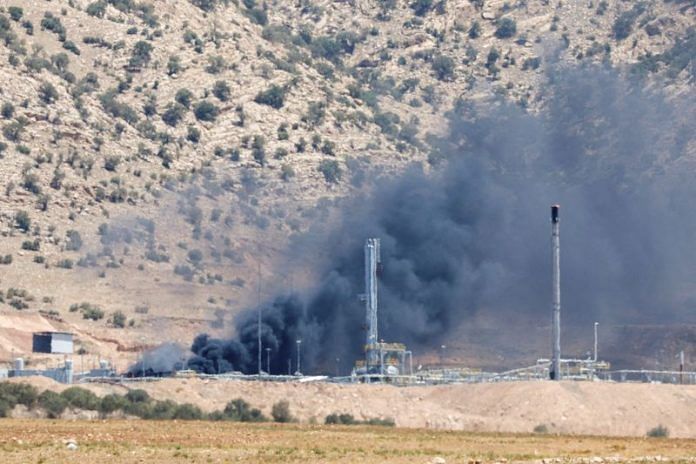By Ahmed Rasheed
BAGHDAD (Reuters) -Drones struck oilfields in Iraqi Kurdistan on Thursday, with officials pointing to Iran-backed militias as the likely source of attacks this week that have slashed the region’s oil output by more than half.
These are the first such attacks on oilfields in the region and coincide with the first in seven months on shipping in the Red Sea by Iran-aligned Houthi militants in Yemen.
Thursday’s strike hit an oilfield operated by Norway’s DNO in Tawke, in the Zakho area, the region’s counter-terrorism service said.
It was the week’s second strike on a site operated by DNO, which operates the Tawke and Peshkabour oilfields in the Zakho area that borders Turkey.
DNO did not immediately reply to a Reuters request for comment.
No group has claimed responsibility for four consecutive days of attacks, but security officials told Reuters the drones came from areas controlled by Iran-backed militias.
No casualties have been reported but oil output in the semi-autonomous Kurdistan region has been slashed by 140,000 to 150,000 barrels per day (bpd), two energy officials said.
That is over half the region’s normal output of about 280,000 bpd.
Iran backs militant groups that are part of the Islamic Resistance in Iraq, a collection of about 10 hardline Shi’ite armed factions that command about 50,000 fighters and arsenals.
They have claimed responsibility for dozens of missile and drone attacks on Israel and U.S. forces in Iraq and Syria since the Gaza war erupted in 2023.
U.S.-based Hunt Oil operates the Ain Sifni oilfield in the Dohuk region, which was attacked on Wednesday.
Hunt Oil said no workers were injured but that it had shut down its facilities to assess damage.
(Reporting by Ahmed Rasheed; writing by Ahmed Elimam and Ahmad Ghaddar; editing by Barbara Lewis, Sharon Singleton and Jason Neely)
Disclaimer: This report is auto generated from the Reuters news service. ThePrint holds no responsibility for its content.




